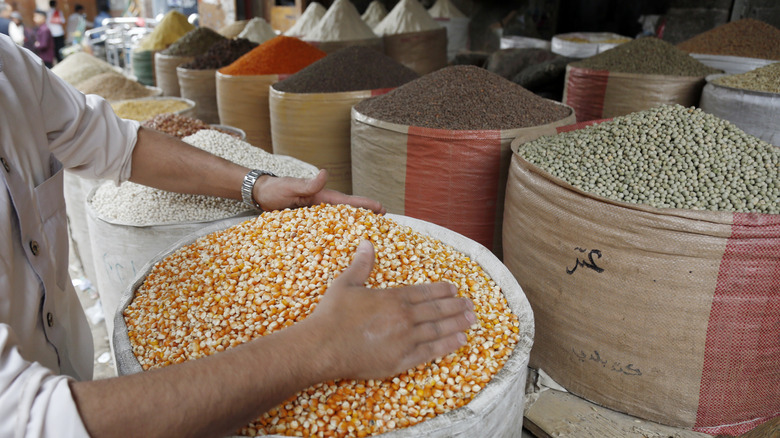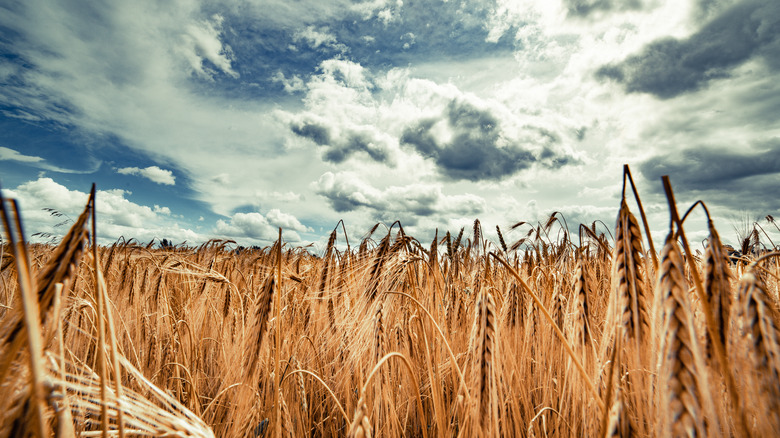Why Yemen Is Seeking Aid From India To Help Fight Its Food Crisis
India is expected to reach a deal with Yemen this week to bolster the war-torn country's dwindling wheat supply. According to Reuters, Yemen, which has been embroiled in a civil war between the Saudi Arabian-backed government coalition and an Iranian-backed Houthi rebellion for seven years, has only enough strategic food stockpiles left in its silos to last through August and has been suffering inflation due to the rapidly increasing price of wheat around the world.
According to the Times of India, wheat prices jumped 40% between January and May 2022, due to a combination of Russia's invasion of Ukraine and environmental struggles in major wheat-producing nations. India's own heatwave led the nation to place a moratorium on wheat exports in order to keep its own domestic prices down. Since that decision was reached in May, however, S&P Global reports that the nation has carved out exceptions to the rule for five countries, including Yemen. While Reuters notes that it is unclear how much wheat Yemen will be requesting from India or when it may be delivered, the negotiations have reportedly gone well since India has been able to better assess its domestic demand and availability (per S&P Global).
Growing global shortage
The exceptions to India's wheat export moratorium will not only help Yemen, but also Indonesia, Bangladesh, the United Arab Emirates, and Oman (via S&P Global). India may provide significant relief to a region which has suffered increased food insecurity following the outbreak of war in Ukraine.
The Associated Press (AP) explains that Russia and Ukraine combined account for about one-third of the world's wheat and barley supply, about 70% of the global sunflower oil, as well as large amounts of the world's corn. Additionally, Russia and its ally, Belarus, are major suppliers of fertilizer, so boycotts and sanctions on the Russian market and blockades of Ukrainian ports by its Russia have impacted food supplies worldwide, particularly in the Middle East, Africa, and parts of Asia. According to Relief Web, Yemen has relied heavily on humanitarian aid for food since 2015 — much of which the United Nations (UN) sources from Ukraine (per Wilson Center) — and imports more than half its wheat supplies from Ukraine and Russia.
With a wheat influx from India and a truce currently in effect between the warring factions (via the UN), the people of Yemen may get some temporary relief. However, if the war in eastern Europe continues, the world may have many more food struggles on the horizon, with the AP reporting estimates of 181 million people at risk of hunger by the end of the year.

